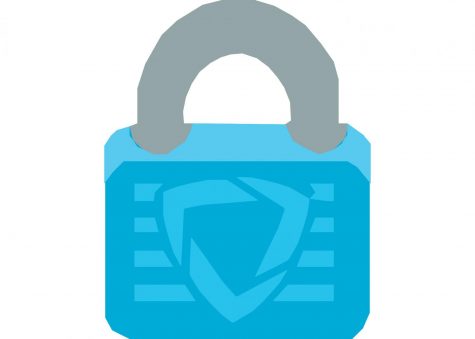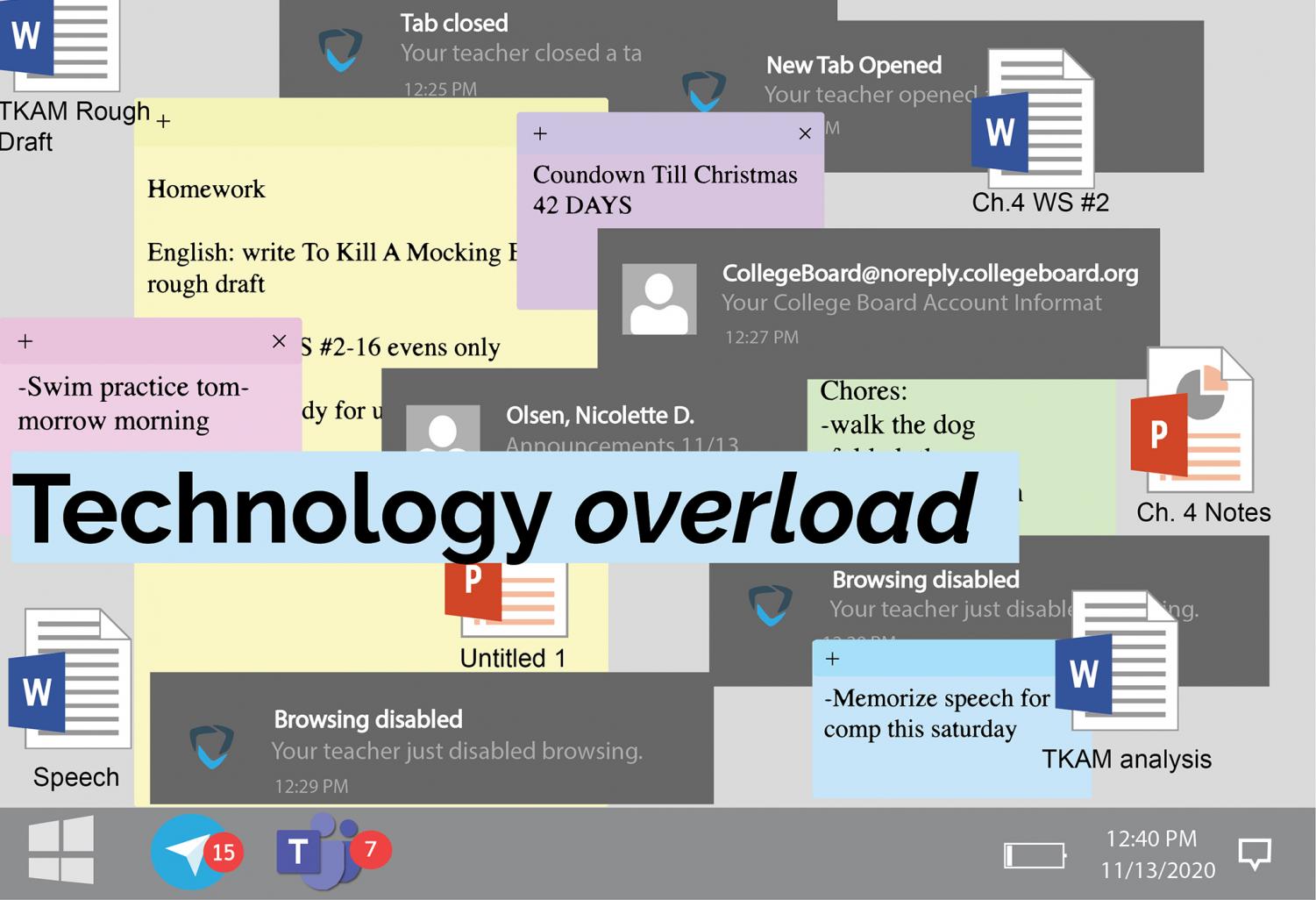Technology Overload
With school transitioning to eLearning for all till Dec. 2, will GoGuardian help teachers and students?
November 12, 2020
With new times comes new changes. Equity between in-person students and eLearners have been a major concern, so the MHS administration implemented GoGuardian. GoGuardian is a program that allows teachers to view students’ screens at any time. With this, came the outcry of alarm from students, concerned whether GoGuardian is an invasion of privacy. Now the question arises of how much teachers can have access to the activities of eLearners, and whether that invades student privacy.

“To be honest I am not the biggest fan of GoGaurdian,” Olivia Quinones, senior, said. “Yes, I do think it will prevent cheating, (but) I feel as if it’s a huge invasion of privacy especially when the school finds a lot of things not school appropriate. We get no freedom. I feel like I need to be more careful and more aware of what I’m doing on my laptop, and I personally don’t like that feeling of someone watching what I’m doing. It’s very uncomfortable. I feel like GoGaurdian should be used at an extent. I get it during a test so we don’t cheat, but anything more I feel is too far.”
Students do not like the feeling of being watched throughout the school day, however, teachers feel differently. Not being in the same space poses difficulties for both teachers and students. Students can only hear the teacher speak, and the teacher can only see a blank screen void of student faces.
“I think relationships with students is what helps drive students to become better learners. With the hybrid system, I have no idea what at-home learners are doing and if they are even listening to me,” Mrs. Lauren Carter, science teacher, said. “I often feel like I am teaching my heart out to a wall.”
This situation is not ideal to motivate students to actively participate and keep them focused. Thus, GoGuardian was implemented by the MHS administration to help bridge the divide between eLearners and teachers.
“It allows teachers to see what students are looking at on their screen,” Mr. Mike Wells, principal, said. “A teacher can see a student working on problems, essays, etc. They can provide immediate feedback to students who need correction or redirection. The purpose of the program is not to invade privacy. It is to ensure students are staying on task and engaged in the lesson.”
As students and teachers alike suffer from ‘pandemic fatigue,’ it has been a struggle to help eLearners stay on task and be motivated.
“(To quote Attorney) Susan Leeson, you can tell when a society is sick by the abundance of rules that it has,” Mr. Michael Gordon, government teacher, said. “The reality is that there’s a lot of distractions. Having some tools to cut some of those distractions down has got to be part of that discussion of how we’re going to teach and learn.”

GoGuardian, however, is not just to supervise eLearners and ensure no one is cheating. It can be used to help teachers gauge how much students understood the material on a test.
“I use GoGuardian to monitor students during testing,” Mrs. Jessica Baird, Algebra teacher, said. “I explained to my students I can use this to ‘level the playing field’ of a test. Just because a student is not testing in my classroom shouldn’t mean they get to cheat on the test because it is harder for me to monitor them. This is important because after a teacher gives an assessment, they often review the assessment, the results, and what students most often missed. If a handful of students or more were to cheat on an assessment, the teacher would believe that the grades are higher than they really should have been and there would be no need for remediation because of the higher scores when in reality the scores should have been lower and remediation is needed.”
With all the benefits this new tool brings, however, teachers and students alike must work together to ensure they make the best out of the situation.
“Both teachers and students have an obligation to be engaged in responsible usage,” Mr. Gordon said.
Many believe that there must be honest and open communication. Communicating and working together ensures that there is not an “us vs. them” mindset.
“(GoGuardian) could affect student-teacher relationships if it used as a constant surveillance tool,” Mr. Luke McGinnis, choir teacher, said. “If a teacher is going to use it, students should be notified ahead of time. It would be an absolute invasion of privacy if students are unaware they are being monitored. If it is used (as I previously suggested), it should help curb cheating and help students stay on task. Otherwise, it is an invasion of privacy.”
Teachers want students to know that they only strive to do the best for their students. Teachers are working for their students, not against them.
“The purpose of the program is not meant to be punitive,” Mr. Dillon Thompson, science teacher, said. “With all of the possible distractions in our modern environment, this can help students develop good habits and focus their energy. (These are) skills that will benefit them beyond high school.”
In these uncertain times, it is important to remember that we are stronger working together than against each other. Cooperation as well as compromise is important to help all of us move forward.
“Over time, this (disconnect) really takes a toll and makes teachers feel unheard,” Mrs. Carter said. “Being able to see live student activity will help with strengthening our delivery of lessons and helps us stay motivated through this difficult time. As much as students need feedback, so do teachers to effectively give a lesson where students and teachers can be successful.”
